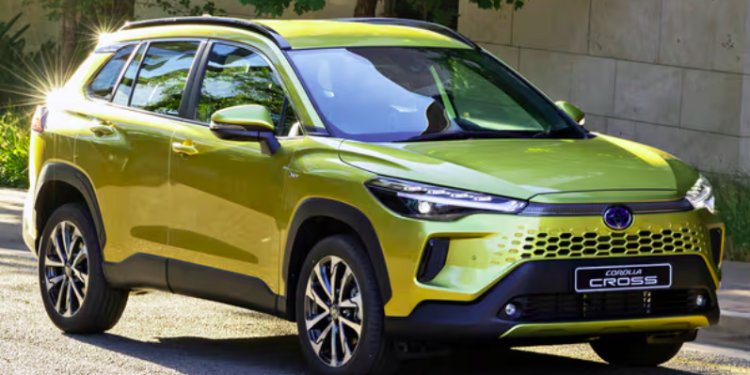Choosing between the petrol-powered Toyota Corolla Cross and its hybrid counterpart can be tricky. Both versions offer great features, but each suits different driving needs. If you’re shopping for one of South Africa’s most trusted crossovers, this guide will help you make a smart decision.
Toyota Corolla Cross: A Quick Overview
Manufactured in KwaZulu-Natal, the Toyota Corolla Cross is a local favourite. It comes in both petrol and hybrid variants, giving buyers the flexibility to choose based on performance, fuel economy, and budget. The model received a facelift in 2025, improving both its looks and features.
Understanding the Hybrid Powertrain
The Corolla Cross Hybrid uses a parallel-hybrid system. That means it can operate on either the petrol engine, the electric motor, or both. It’s a self-charging setup, which pulls power from regenerative braking and the petrol engine—no plug-ins required.
Unlike mild hybrids, this one can actually run on electric power alone at low speeds. This setup makes it perfect for urban drivers who face regular stop-and-go traffic.
Fuel Efficiency: Who Wins?
Let’s talk numbers.
- Petrol Version (1.8 XS):
- Engine: Naturally aspirated 1.8-litre
- Fuel economy: 6.8 L/100 km
- CO₂ emissions: 154 g/km
- Tank size: 47 litres
- Range: Around 691 km
- Hybrid Version (1.8 HEV XS):
- Engine: Atkinson-cycle 1.8-litre + electric motor
- Fuel economy: 4.3 L/100 km
- CO₂ emissions: 98 g/km
- Tank size: 36 litres
- Range: Around 837 km
Despite having a smaller tank, the hybrid gives you more distance per fill-up. That means fewer stops at the pump—something any driver will appreciate.
Power and Torque Compared
The petrol variant delivers a higher total power output.
- 1.8 XS Petrol: 103 kW
- 1.8 HEV XS Hybrid: Combined 90 kW (72 kW petrol + 53 kW electric)
Torque figures are a bit different:
- Petrol Engine: 172 Nm
- Hybrid Powertrain: Not officially listed, but the petrol side produces 142 Nm, while the electric motor offers up to 163 Nm.
While the petrol variant has a higher top speed (185 km/h vs 170 km/h), the hybrid shines in quick, low-speed response—ideal for city driving.
Pricing and Long-Term Value
Now, let’s look at your wallet.
- Petrol (1.8 XS): R452,200
- Hybrid (1.8 HEV XS): R494,400
The hybrid costs about R42,200 more. However, that price difference can be recovered over time through fuel savings and lower emissions taxes.
Concerned about battery replacement? Don’t stress. Toyota South Africa offers an 8-year/195,000 km warranty on the hybrid battery, plus a 3-year/100,000 km standard warranty for the vehicle.
Towing Capacity: Important for Road Trippers
Do you tow a trailer or a small caravan? Then take note:
- Petrol Variant Braked Towing Capacity: 800 kg
- Hybrid Variant Braked Towing Capacity: 400 kg
Clearly, the petrol model is better suited for heavy hauls.
When to Choose Petrol Over Hybrid
If you frequently drive on highways or need towing capacity, the petrol variant is more reliable. It offers a higher top speed, greater towing ability, and a larger fuel tank.
When the Hybrid Makes More Sense
Urban drivers should lean toward the hybrid. It’s fuel-efficient, quiet in traffic, and environmentally friendly. If most of your travel happens in city centres, you’ll benefit from its low consumption and smooth drive.
To find second-hand cars suitable for these conditions, check out https://auto24.co.za/. You’ll find models like the Corolla Cross hybrid already available with decent mileage and competitive prices. For industry insights, news, and tips on maintaining your Toyota, be sure to visit https://imotonews.co.za/.
Also, don’t miss our guide on how to care for your hybrid vehicle and saving money on fuel—two must-reads if you’re thinking long-term.
Final Verdict: Hybrid or Petrol?
Both the petrol and hybrid Corolla Cross models are solid choices.
- Choose petrol for long-distance driving, towing, and higher performance.
- Choose hybrid if you’re often in traffic, want lower fuel costs, and care about emissions.
At the end of the day, it’s about matching your car to your lifestyle.





